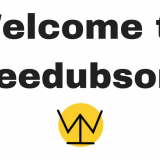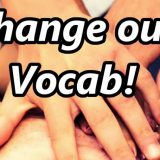Using Technology as Transnational Education?

My recent trip to Viet Nam has opened up many possibilities for coming up with ways to solve problems. And I also want to think about these issues critically as well, and whether the solutions I come up with would help or contribute to a larger problem. Let me share with you a few examples.
One day I went with my younger sister-in-law to her after school high school English group tutoring at her teacher’s house. This seemed to be a pretty common thing that high schoolers are required to participate in, assuming their parents have money. After I met the teacher, she invited my mother and younger sister to have coffee with her and her colleagues. Going to coffee is a common activity in Vietnam as a way to hang out and pass the time. When we met with the three English teachers, they were very interested in talking to us because it gave them a chance to practice their English and learn about American culture.
It soon became apparent from their remarks that many residents in this district have never seen a foreigner in their town. Of course, if you go to the coast you will see many tourists from around the world. They just hadn’t seen anyone come to CuMgar. School in Viet Nam is very competitive, even though getting a degree won’t allow you to avoid paying bribes if you want a decent paying job. English-speakers, of course, have better chances of getting jobs and going to better schools. This is especially because of the evolving tourist industry. The lack of native English speakers means that people living in CuMgar don’t have quite the same opportunity for mobility as people living in Sai Gon, Ha Noi, Da Nang, or Nha Trang.
Now I’m not advocating that we set up a tourist hot-spot in this small little town, but I’ve been thinking about how advancing technology can bridge the gap between educational opportunity and geographic restrictions. Indeed, internet platforms such as Youtube and Facebook have made languages more accessible for those that do not have a native speaker to hear. However, those platforms only get you so far when you’re learning a language. There’s more to simply listening to a native speaker. You have to speak the language yourself in order to improve. I see this need for people to want to learn English, and based on my past research I would argue that learning English will not erode your own language or culture unless you move to an English speaking country. My time in Nepal earlier this year revealed that learning English gives people a voice which might not otherwise be heard by the global community if they could not speak English. Unfortunately, that’s the way things are right now until the universal translator is invented. But until then, I’ll be playing with the idea of video-chat based English conversations between a small community in Dak Lak and a possible future program at Evergreen.
















On the other hand, the positive contribution of innovations in music and entertainment to human life has brought another privileged half as a valid and important system accepted by all. You can download mobile mp3 using tubıdy mp3 download and applications.
Tubidy Mp3 converter and converter application, you can get the opportunity to convert the music you want to different formats.
It’s going to be ending of mine day, except before finish I am reading this
great piece of writing to improve my knowledge.
This is the perfect webpage for anyone who wishes to understand this topic.
You understand so much its almost hard to argue with you (not that I personally would want to?HaHa).
You definitely put a brand new spin on a topic that’s been discussed for many years.
Excellent stuff, just wonderful!
Rất tốt ! Tôi hoàn toàn đồng ý với quan điểm của bạn. Chúng ta cần bảo vệ chính cuộc sống của chúng ta, mỗi cá nhân con người đều rất quan trọng. Có lẽ, việc tham gia giao thông an toàn cũng chính là cách để bảo vệ bản thân và mọi người xung quanh. Do đó, việc có đầy đủ kiến thức và kỹ năng về giao thông là thật sự cần thiết. Một trong số trường làm được điều này phải kể đến đó là trường dạy lái xe Tiến Thành. Hãy liên hệ để được biết về quy trình học lái xe nhé.
bizimmekan sohbet odaları
çiçek isimleri
Bir bitkinin onsuz yaşayamayacağı (çok önemli) ev bitkisi bakım talimatları vardır veya yanlış anlarsanız zarar görmüş bir bitkiyi tedavi etmiş olursunuz; daha da kötüsü ölecek. Sulama bu talimatlardan biridir.
Bazı bitkilere (örn. sulu meyveler) çok fazla su vermek onları kolayca öldürebilirken, diğerleri için yeterince su vermemek bitkinin büyümesini engelleyerek yaprakların dökülmesine ve çiçeklerin hızla solmasına neden olur.
Kamera sistemleri, Güvenlik Kamerası Fiyatları https://www.lemaxguvenlik.com/
Son Dakika Haberler, Güncel Haberler https://www.haberduyur.com/
Vibratör Fiyatları, Dildo Fiyatları https://www.magazabudur.com/kategori/cinsel-urunler/vibrator-ve-dildo-cesitleri.aspx
bu ne harika kardeşim on numarasın lan varya sen hakikaten ADAMSIN ADAM!
bu arada => kişisel web
A quick walk around the block, a few deep breaths at your desk, and making yourself a lovely cup of coffee.
Breaking the day up with mindful pauses helps you move from one intentional action to another, rather than zooming through the day on autopilot. And accumulating stress as you go.
Do remember, balance isn’t a static state. Rather, it’s achieved through the capacity to actively re-balance.
The precarious work patterns in tech – all-nighters, sprints, investment rounds, product launches – can leave us dealing with intense levels of pressure and teetering towards imbalance – a huge trigger for stress and burnout.
Insurance is a stressful game, especially if you’re in a leadership role. It’s unlikely that as a insurtech founder, you’re adverse to challenges, setbacks, or obstacles. The current state of play, however, will test even the most robust of leaders (see InsurTech Startups in the World). The sector’s more shaken up than a snow globe. We’re seeing competitors and colleagues scale back on growth forecasts and teams in equal parts.
As we zoom towards the year’s end, too, burnout and overwhelm tend to emerge as very real threats for so many of us. As leaders we have a responsibility to our teams, our investors, and our families to take care of our mental – and emotional – well-being. Candidly speaking, the last thing our communities need is another burnt-out founder.
By introducing a few simple self-coaching practices in these coming days, you can build the Mental Fitness needed to help you navigate these last few weeks of 2022 and make the most of the seasonal downtime. So that you can go into 2023 thriving as a leader.
“First, we really need to understand stress. Specifically, how it manifests – it’s about having an awareness of how it presents for you. Stress is often bound up with the experience of imbalance, challenged boundaries, or uncertainty, so common in the current environment”, says Finance Media Holding. “And, because stress spirals, we tend to find ourselves reacting”.